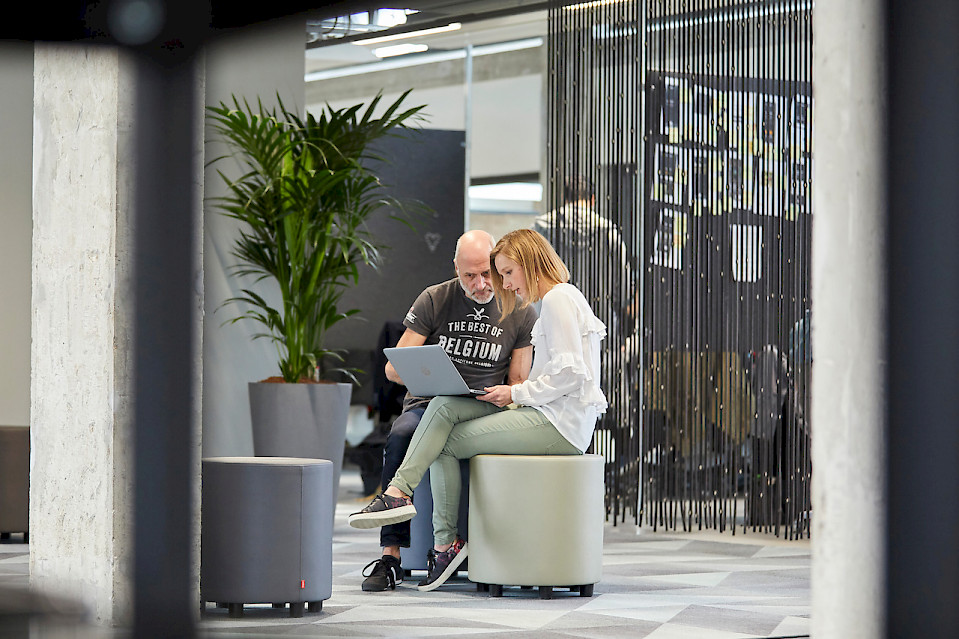During the spring semester, the interdisciplinary research team of the departments of O&O, H&F, SV and Fontys University of Applied Sciences ICT, consisting of Jolijn Jansen, Chantal Gorissen, Jakob Sutmuller, Levi van den Bogaard and Mariëlle Taks, investigated the hybrid learning environment and its influence on the professional development of students and instructors and the authentic cooperation with the professional field. Meanwhile, the results have been compiled and reported with a number of striking insights.

Face-to-face contact important for successNo less than 400 students worked on 47 research projects in the Fontys ICT InnovationLab in the spring. They did this together with work field partners and teachers. From late April onwards, part of the education could again take place on location. That turned out to be very important, researchers Levi van den Bogaard and Chantal Gorissen explain: "Our interviews revealed mixed signals. Students complained about the accessibility of principals and lecturers, a lack of documentation, but also that there was a mismatch between the wishes of a principal and the learning objectives. This is partly due to the educational format, but when there was face-to-face contact with the partners, students were more motivated and had access to experts. According to the students, the presence of partners on location should be increased. It would make coordination with clients easier and could ultimately lead to an even more valuable result.
Hybrid learning environment requires fine-tuningRespondents from the field partners are by far the most positive evaluators of authentic cooperation (an average of 7.9). This has a lot to do with the results. Teachers are positive as well, but with a comment. They often take on a mediating role between student and client and sometimes have to get used to the working form in a hybrid learning environment. What is clear, according to researcher Mariëlle Taks, is that the InnovationLab is working on a different interpretation of the role of the student, lecturer and work field partner and that this does not happen automatically. "In an ideal situation, a hybrid learning environment provides learning benefits for all participants, because they work together on a particular issue. For students, this is ICT knowledge but also professional skills. That requires a different approach from instructors, in which coaching of communicative and research skills requires more attention. In practice, instructors have limited scope to conduct their own research and thus contribute to knowledge development and their own professionalisation. That is a challenge."
Questions for the futureEducation on location contributes a great deal to the experience and contacts between the stakeholders in a hybrid learning environment. Partners often have a different approach, for example making contact with young professionals or making a social contribution. So the question is, what is needed to create a place where everyone comes to learn? And that invites to share knowledge? And is this what partners need at all? In addition, there are specific bottlenecks for teachers in the area of personal professionalisation as a teacher-researcher. What solutions can be found for this?
In the coming period, the research will look for answers via expert interviews and focus groups. More information about the research into the impact and development of the Fontys ICT InnovationLab can be found hier. Would you like to know more about the results or view the reports? Then please contact Mariëlle Taks and Jolijn Jansen.